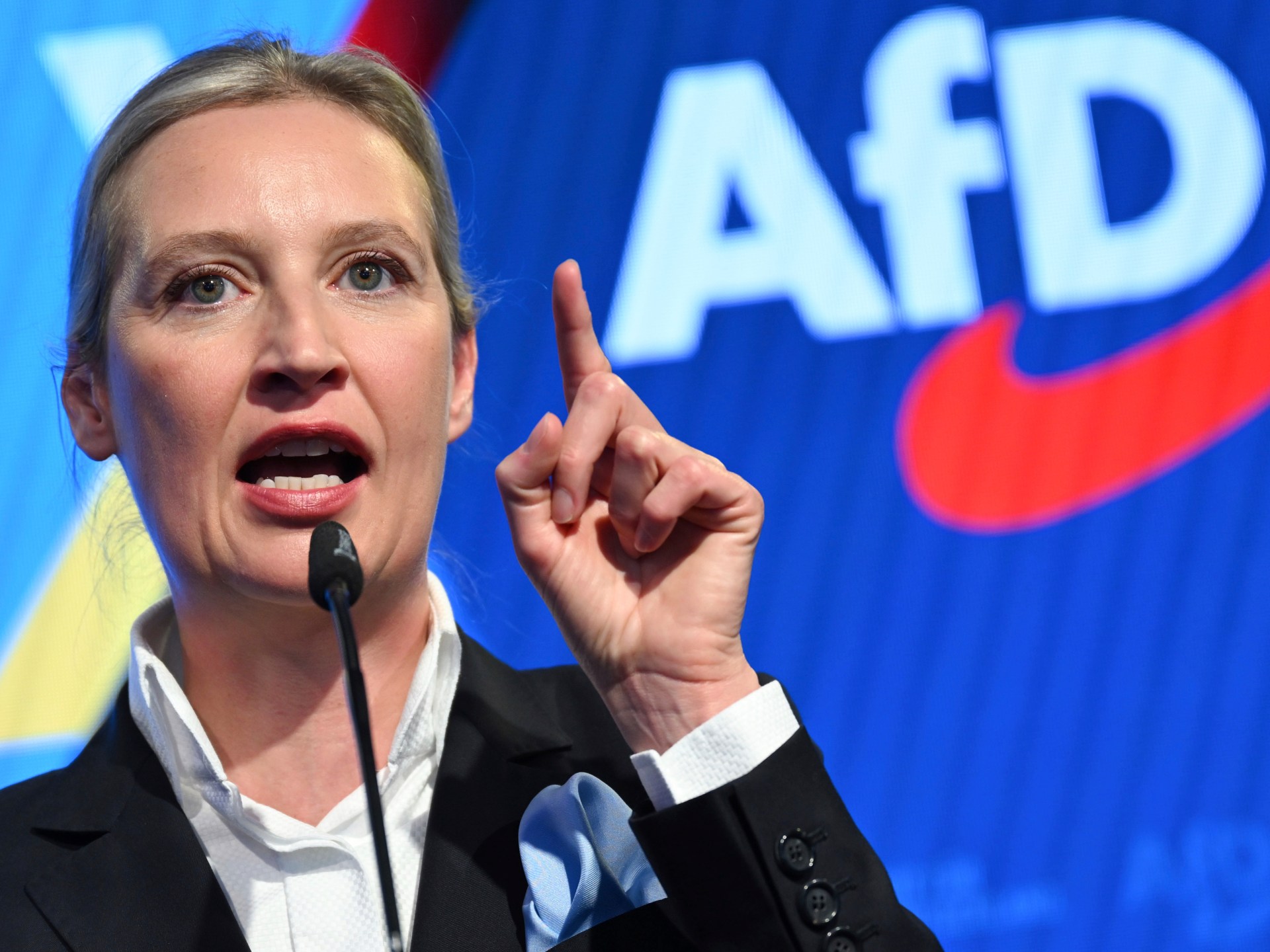German Chancellor Friedrich Merz’s conservative party has won local elections in the country’s most populous state, while the far-right Alternative for Germany (AfD) nearly tripled its share of the vote from five years ago.
Merz’s centre-right Christian Democratic Union (CDU) won about 33.3 percent of the vote in his home state of North Rhine-Westphalia, preliminary results showed on Monday.
Recommended Stories
list of 4 itemsend of list
The centre-left Social Democratic Party (SPD) came in second with 22.1 percent, followed by the AfD, which won 14.5 percent.
The figure marks a 9.4 percentage-point increase in support for the nationalist, anti-immigration party since the last election.
North Rhine-Westphalia Premier Hendrik Wust, of the CDU, hailed the outcome, calling his state the “powerhouse” of the governing party.
But the strong showing for AfD, Wust told public broadcaster ARD, “must give us food for thought”.
The outcome “cannot let us sleep peacefully,” he said, and centrist politicians must ask themselves “what the right answers are when it comes to poverty and migration”.
AfD’s coleaders were jubilant.
Alice Weidel called the results a “huge success”, while Tino Chrupalla offered congratulations to the party’s supporters.
“This is a great success for us,” Chrupalla wrote in a post on X. “We are a people’s party and we all bear a great responsibility for Germany.”
The election on Sunday was the first electoral test for Merz, who took office in May.
The western state is home to nearly a quarter of Germany’s 83.51 million population and encompasses the industrial Ruhr area as well as key cities such as Cologne and Dusseldorf.
AfD ‘entrenching’ in western Germany
Oliviero Angeli, a political scientist at the Dresden University of Technology, said the results marked a “relative success” for the CDU, but also underscored the growing support for AfD in western Germany.
Angeli told Al Jazeera the CDU has strengthened its position in North Rhine-Westphalia, despite strong criticism of Merz, including accusations of policy stagnation at the federal level.
What is “striking”, however, is the performance of the AfD, he said.
The outcome shows the party “is steadily entrenching itself in the West” after the national election in February, in which it emerged as the strongest political force in eastern Germany and the second-biggest party at the national level.
“While AfD remains five to 10 percentage points below its national average, it is nonetheless consolidating its position in western Germany,” Angeli said.
“Migration continues to be the AfD’s core issue, and the party can still mobilise around it despite the recent decline in asylum applications,” he added.
The AfD, founded in 2013 by right-wing economists during the European debt crisis, has moved further right in the ensuing years, vehemently opposing the country’s decision to welcome a million refugees from the Middle East and parts of Africa in 2015.
Germany’s domestic security agency in May branded the AfD as a threat to the country’s democracy, describing it as a racist and anti-Muslim organisation that “aims to exclude certain population groups from equal participation in society” and “subject them to unconstitutional discrimination”.
It said the party has stirred “irrational fears and hostility” towards minorities, as “evident in the numerous xenophobic, anti-minority, anti-Islamic, and anti-Muslim statements continually made by leading party officials”.
The AfD has condemned the classification as “a blow against democracy”.
The party’s strong showing on Monday prompted concern among politicians in neighbouring states, too.
Olaf Lies, the SPD premier of the state of Lower Saxony, said he was looking at the “AfD’s results with great concern”.
Source: Aljazeera

Leave a Reply